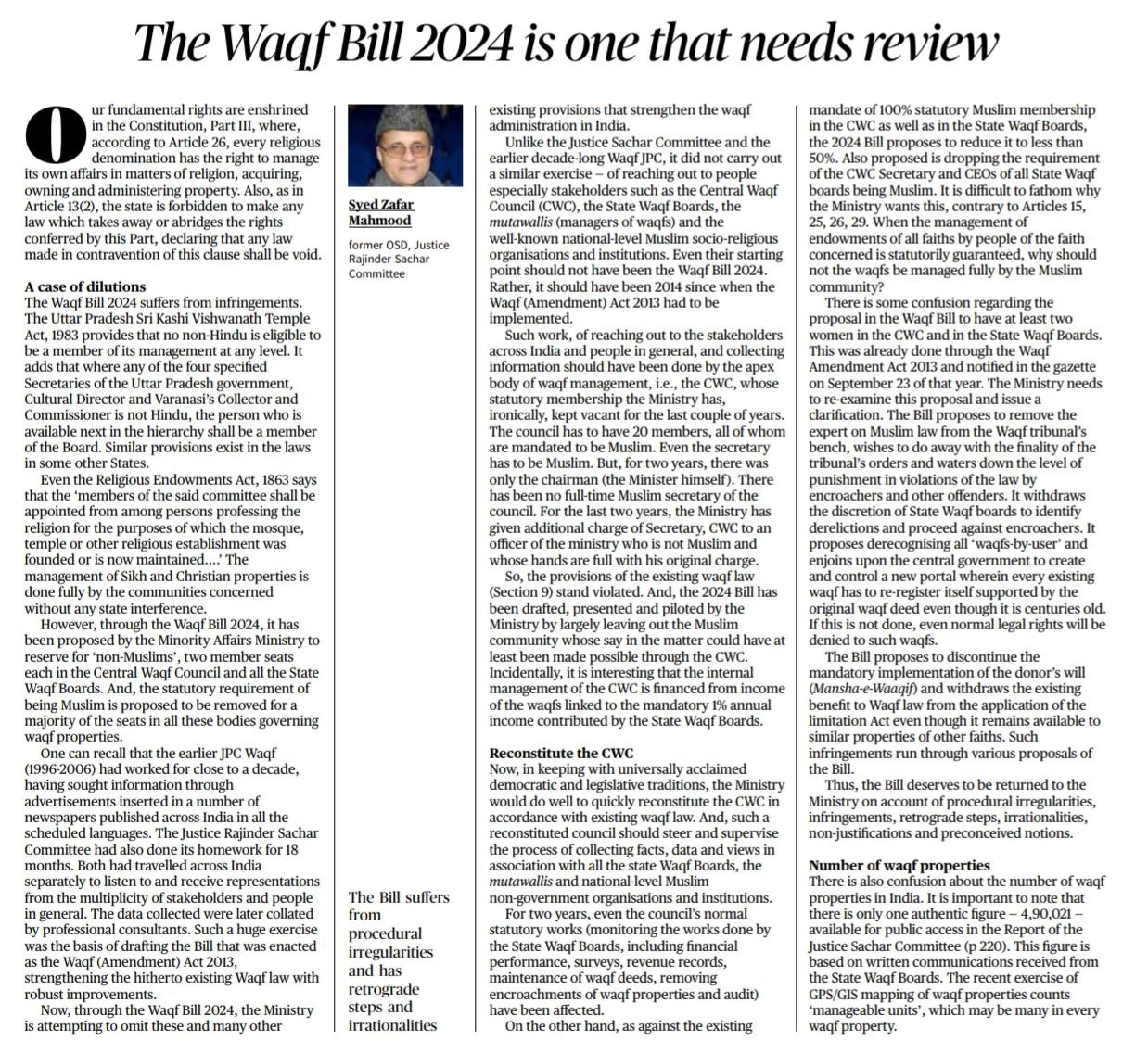The Waqf Bill 2024: A Critical Review of Its Provisions and Impact on Religious Autonomy
Introduction:
- The Waqf Bill 2024 is a proposed amendment by the Ministry of Minority Affairs aimed at regulating the administration of waqf properties in India.
- The bill addresses various provisions under the Waqf Act, 1995, and has sparked concerns due to its proposed changes, particularly in the composition of the Central Waqf Council (CWC) and State Waqf Boards (SWBs).
- It has raised issues around the representation of non-Muslims, the statutory requirement of Muslim members, and the broader implications on waqf properties.
Key Points of the Waqf Bill 2024:
- Dilution of Provisions:
- The bill seeks to infringe upon the autonomy of waqf management, similar to how non-Hindus are excluded from managing religious properties in acts like the Uttar Pradesh Sri Kashi Vishwanath Temple Act.
- The proposed bill allows non-Muslims to be part of the management of waqf properties, which contradicts the established practice in religious property management laws for other faiths.
- Changes in the Waqf Act 1995:
- The bill suggests reducing the Muslim majority requirement in the CWC and SWBs from 100% to at least 50%.
- Two members who are non-Muslims will be reserved in both the CWC and State Waqf Boards.
- The requirement for the secretary of the council to be Muslim has been dropped, a significant deviation from past practices.
- Concerns Raised:
- The lack of stakeholder consultation, as was done during the Sachar Committee and the earlier Waqf Act reviews, has led to concerns.
- The bill’s focus on changing the Muslim-dominated waqf management system contradicts earlier established norms and is viewed as unnecessary interference.
- The emphasis is placed on the potential political and socio-religious implications, particularly how the Muslim community perceives the reform.
- Reconstituting the CWC:
- The Waqf Bill suggests a democratic restructuring of the CWC, ensuring that elected representatives oversee the waqf administration.
- Critics argue that the inclusion of non-Muslim members and government appointees in this council compromises the religious essence of waqf properties.
- Management of Waqf Properties:
- The bill highlights the poor state of waqf property management, with thousands of properties not being utilized for community welfare.
- Lack of maintenance, proper revenue management, and registration issues have been significant concerns that the bill aims to address.
- There is a clear need to review the number of unregistered properties and prevent encroachments, which has been a longstanding issue.
Conclusion:
- The Waqf Bill 2024, while aimed at improving the administration of waqf properties, has stirred debate due to its controversial provisions that dilute the Muslim-majority management framework.
- Stakeholders argue for a re-evaluation of the bill, ensuring that the core essence of waqf properties as Islamic religious endowments is respected.
- A more inclusive consultation process with Muslim religious and community leaders is necessary to ensure that the bill addresses the community’s concerns without compromising their religious autonomy.
Mains Practice Question:
|
Q. The Waqf Bill 2024 has sparked significant debate due to its proposed changes in the management and administration of waqf properties in India. Critically examine the key provisions of the bill and assess its potential implications on the autonomy of religious endowments.
|


